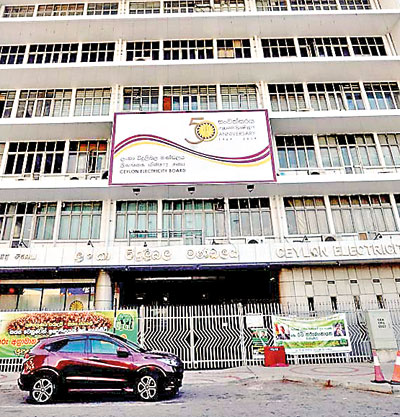Wednesday Feb 18, 2026
Wednesday Feb 18, 2026
Wednesday, 5 June 2024 00:00 - - {{hitsCtrl.values.hits}}
 The Supreme Court has ruled that the proposed Sri Lanka Electricity Bill conflicts with the Constitution, requiring a special Parlia-mentary majority for its passage.
The Supreme Court has ruled that the proposed Sri Lanka Electricity Bill conflicts with the Constitution, requiring a special Parlia-mentary majority for its passage.
Speaker Mahinda Yapa Abeywardena announced to Parliament yesterday that the identified inconsistencies can be rectified, allowing the Bill to pass with a simple majority if the necessary amendments are made as per the Supreme Court’s guidance. The ruling highlights that the new entities to be formed by the division of the Ceylon Electricity Board (CEB) must not operate as fully private companies.
The court specified that the Treasury Secretary should maintain a minimum of 51% ownership in these successor companies.
The Sri Lanka Electricity Bill seeks to restructure the CEB into independent corporate entities, each responsible for different aspects of electricity generation, transmission, distribution, trade, supply, and procurement—functions currently managed by the CEB as a unified entity.
After reviewing 29 petitions challenging the bill, a three-member Supreme Court bench consisting of Justices Vijith Malalgoda, Shiran Gunaratne, and Arjuna Obeysekera determined that the bill, in its entirety, violates Article 12(1) of the Constitution which ensures equality before the law, a standard the bill failed to meet.
For the bill to become law, the Supreme Court said it requires a special Parliamentary majority. However, the court recommended several amendments that would allow it to pass with a simple majority. Initially, the Treasury Secretary is to hold 100% of the shares in the successor companies. The disposal of any shares by the Treasury Secretary must be approved by the Cabinet of Ministers and follow a transparent and competitive bidding process. Furthermore, the Government must retain more than 50% ownership in these companies.
The Supreme Court also stipulated that asset allocation and valuation, including land, buildings, machinery, and other assets, should be completed by the Chief Valuer before the appointed date.
The Bill’s provisions, except for certain sections, will come into effect on a date specified by the Minister through a Gazette notice, only after ensuring the preparation and approval of the Preliminary Transfer Plan, National Electricity Policy, National Tariff Policy, Annual Power Procurement Plan, and Long-Term Power System Development Plan. If no date is published, these provisions will automatically take effect 12 months after the Bill becomes law.
Speaker Abeywardena communicated the Supreme Court’s decision, indicating that the bill, as currently drafted, is inconsistent with Article 12 (1) of the Constitution and requires a special majority under Article 84 (2). However, if the proposed amendments are implemented, it could be passed with a simple majority.
The Committee on Parliamentary Business, led by Speaker Abeywardena, has scheduled the second reading debate for the Electricity Bill tomorrow. Opposition Leader Sajith Premadasa, along with MPs Wimal Weerawansa and Dayasiri Jayasekara have requested additional time for the debate.
